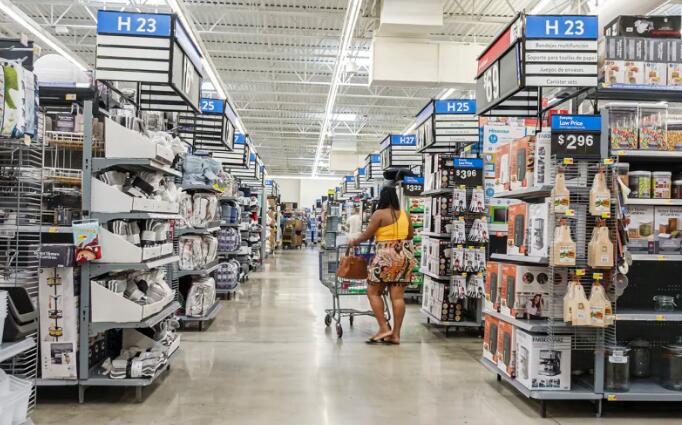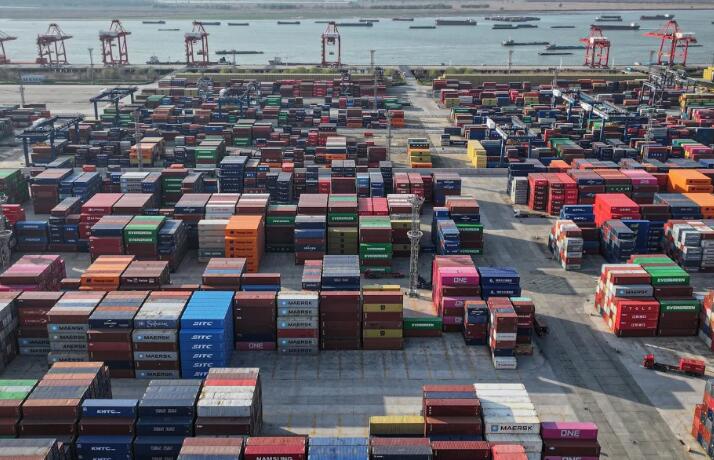Excerpt: As Trump’s tariffs squeeze US retailers, China is resisting Walmart’s attempt to force its suppliers to absorb the costs, potentially leading to higher prices for American consumers.

Walmart, known for its relentless pursuit of low prices, is facing a new challenge in the US-China trade war. The retail giant attempted to leverage its considerable power to pressure Chinese suppliers into absorbing the costs of President Donald Trump’s 20% tariffs on imported goods. However, this time, Walmart received a firm “No” from China.
Trump’s tariffs, effectively taxes on imported goods, are impacting retailers like Walmart, which heavily relies on Chinese manufacturing to offer affordable prices to American consumers. Walmart’s strategy was to pass these costs onto its Chinese suppliers by demanding lower prices. However, the Chinese government is intervening, leaving the company caught between appeasing US consumers and facing repercussions from Beijing.
This situation highlights the predicament of American companies navigating the escalating trade conflict. While US consumers demand low prices, the Chinese government’s intervention could hinder Walmart’s ability to deliver them. Experts warn that if a company as powerful as Walmart struggles to contain prices, smaller businesses will feel the impact even more acutely.
Earlier this month, Chinese officials reportedly summoned local Walmart executives to discuss the retailer’s demands for price cuts from Chinese suppliers, including kitchenware and clothing manufacturers. These requests allegedly sought price reductions of up to 10% per tariff round.
He Yongqian, a spokesperson for the Commerce Ministry, confirmed the outreach to Walmart, stating that “Our relevant departments have reached out to Walmart to further understand the situation, and the company has provided an explanation,” without elaborating.
A Walmart spokesperson reiterated the company’s commitment to helping people “save money and live better,” adding, “Our conversations with suppliers are all aimed at making our purpose a reality for millions of customers, and we will continue to work closely with them to find the best way forward during these uncertain times.”
Walmart now faces a difficult choice: raise prices, risking consumer backlash and impacting its bottom line, or continue pressing suppliers, potentially incurring the wrath of the Chinese government. This scenario contradicts US Treasury Secretary Scott Bessent’s earlier prediction that Chinese manufacturers would “eat the tariffs” and prices for US consumers “won’t go up,” according to trade experts.
“What this is signaling is that the Chinese government is saying, ‘We’re not going to pay for this tariff. US consumers are going to pay for it,'” explained Thomas Hoenig, a fellow at the Mercatus Center at George Mason University and former president of the Federal Reserve Bank of Kansas City.
The timing of these tariffs coincides with a challenging period for US consumers and the retail industry. Shoppers are cutting back on discretionary spending, and retail sales figures were weaker than expected in February, fueling concerns about a slowing US economy and potential recession.
Walmart’s strategy of leveraging its scale and bargaining power to drive down prices is now vulnerable to resistance from the Chinese government. Analysts estimate that the company sources around 20% of its goods from China.
Joseph Jurken, founder of ABC Group, a supply chain consultancy, suggested that China’s response may be a “national statement” signaling its limits. He stated, “Trump has been saying it’s a tariff on China. China may have drawn a line in the sand.”

The stakes extend beyond Walmart’s US operations, as the company also has a significant retail presence in China, including its Sam’s Club warehouse chain. Last year, Walmart’s sales in China grew by 16% to $17 billion. The company’s business in China could be at risk if the Chinese government continues to apply pressure.
While acknowledging the challenges, Michael Baker, an analyst at DA Davidson, believes Walmart is better positioned than most companies to weather the tariffs, as two-thirds of its products are manufactured in the United States. Furthermore, Walmart’s diversified supplier base in over 70 countries reduces its reliance on China.
While the US has imposed tariffs on Canada, Mexico, and European countries, Baker believes this will have a lesser impact on Walmart than tariffs on China, given lower import volumes and the perceived greater influence of the Chinese government over suppliers.
This situation is the latest instance of China’s pushback against the United States and American companies.
The Chinese government has recently announced retaliatory tariffs on US agriculture imports and launched investigations into Google for alleged antitrust violations. Additionally, PVH, the parent company of Calvin Klein and Tommy Hilfiger, has been placed on China’s “unreliable entities list,” potentially barring them from doing business in China.
PVH has responded critically and said it would work with Chinese authorities to resolve the situation.